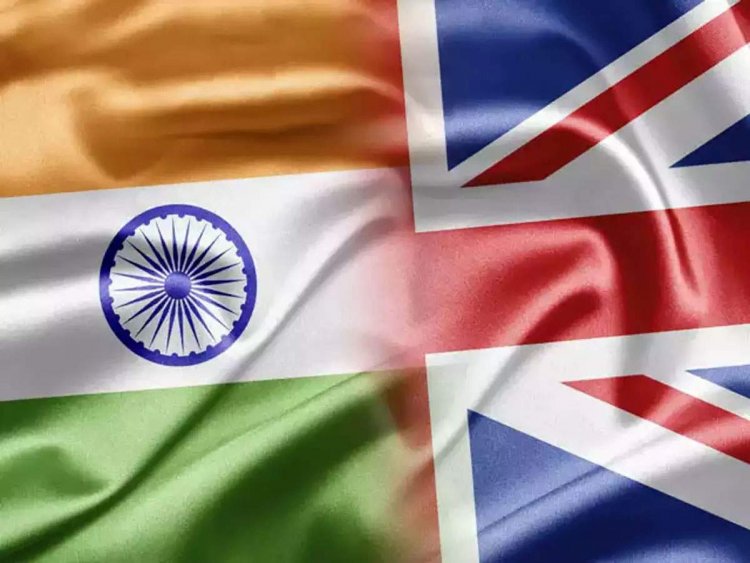UK - India: Strategic Ties
STORIES, ANALYSES, EXPERT VIEWS

With the visits to India last week of Liz Truss – the new British Foreign Secretary – and General Carter, there is a real opportunity to further strengthen strategic partnership between India and then UK.
Prime Minister Boris Johnson’s administration, writes Rudra Chaudhuri (director of Carnegie India) “is in the midst of experimenting with one of the most ambitious foreign policy agenda’s in the nation’s recent history. Take the announcement on AUKUS, whereby – potentially in the next couple of years – British, American and Australian nuclear powered submarines will patrol the Indian Ocean…..
UK’s Carrier Strike Group in Bay of Bengal: “Such groupings substantiate, at least in part, Britain’s declared ‘tile’ to the Indo-Pacific, clearly outlined in the Integrated Review. In August 2021, the United Kingdom became a “dialogue partner’ of the Association of South East Asian Nations (ASEAN). The UK’s Carrier Strike Group (CSG) – led by the aircraft carrier HMS Queen Elizabeth – has sailed into the Bay of Bengal. The CSG, which includes a Dutch frigate, conducted exerciseswith the Indian Navy in May 2021. Making sure to balance both security and diplomatic imperatives, the UK and India held their inaugural Maritime dialogue on 18 October.”
The CSG’s foray into the Indian Ocean underlined, according to the First Sea Lord Admiral Tony Radakin— who will assume charge as the Chief of Defence Staff (CDS) at the end of November, the “deepening comprehensive strategic partnership” between the two “blue water, multi-carrier” navies. Alex Ellis, the British High Commissioner to India, underscored the importance of the CSG in the Indian Ocean. “The visit will boost the cooperation of our armed forces,” he stated, and “show the living bridge connecting our people.” Indeed, across Whitehall, “strategic” is the term unfailingly used when discussing India. That India is a top foreign policy priority for Global Britain is without doubt.
Imbalance is also palpable
In other areas, Chaudhuri writes “the relationship looks less strategic. Everyday operational issues, from challenges at the counsellor level to export controls in the UK, and from stark differences on Afghanistan to the need to do more on sharing intelligence – an imbalance is palpable. Tactics rather than the strategic fortunes talked-up in the Integrated Review and in the ten year road-map or the 2030 vision agreed by Prime Ministers Narendra Modi and Boris Johnson, occupy a good dose of administrative energy. There is, clearly, a need to rebalance the scales. Strategic promise ought to vitalise the relationship. There is an urgent need to find what might be called a strategic glue that can, in turn, focus attention on a larger set of purposes.
“…….What is needed is a strategic investment in a set of exchanges that can further support the road-map, the contours of which are clearly outlined. Mostly, such a dialogue will need to brainstorm a set of imperatives that can bind both countries at the strategic level.
“…..Further, there is an equally urgent need to initiate a discrete dialogue on the future of Afghanistan. There is a very strong view in India that the UK will essentially be swayed by Pakistani imperatives………”
Nevertheless, concludes Chaudhuri “there is an exciting universe between Britain and India that needs to be discovered and re-discovered by economic, technological, cultural, and political interlocutors in both countries. The CSG provides both the symbolism and the encouragement for this journey of the future, but it’s only another beginning.”
















